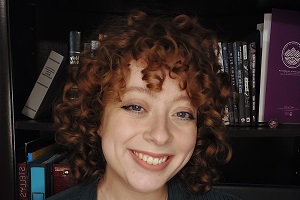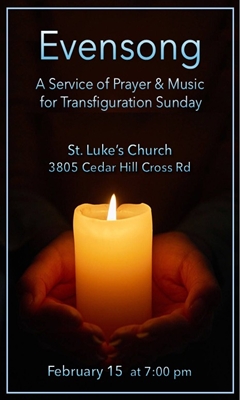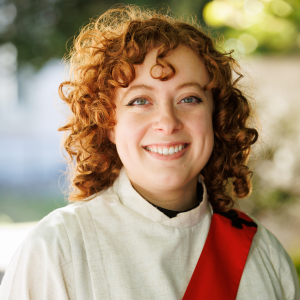
Where did you grow up and what were your early religious influences and experiences?
I was born and raised on the Saanich Peninsula (unceded W̱SÁNEĆ territory). I did French immersion at school, took dance lessons in North Saanich, spent my Labour Day long weekends at the Saanich Fair and saw the lights at Butchart Gardens every Christmastime.
My childhood was a love affair with church. I have treasured memories of Sunday school, Christmas pageants, and Sunday mornings spent singing hymns and eating goldfish. I experienced my faith primarily through song and story, communion bread and crafts, and carefully playing with ladybugs in sunlight filtered through stained glass. I loved taking communion, but could never understand why we needed to pray for so long first. I drew nativity scenes obsessively every December — my mother still has a collection of them! Looking back, I can see many of the building blocks of the faith of my adulthood: I love the sensory experience of church (its scents, sounds and art), I love to sing and chant, and I have a deep devotion to the incarnation and the eucharist (sometimes, I still wonder why the prayer is so long).
What studies have you done and what route did you take for your studies?
I did my undergraduate degree in religious studies at Mount Allison University, in New Brunswick. Looking back, these years were formative in shaping my path to ordination and ministry. Majoring in religious studies fostered my capacity to engage critically with my own religious tradition and unflinchingly acknowledge Christianity’s shadow side. Conversely, I discovered marginal voices with incredible wisdom — this is where I first explored feminist, queer, postcolonial and disability theology. I also uncovered a deep appreciation for and curiosity about other religious traditions, embraced the significance of embodiment in Christian theology and found spiritual kinship with the mystics of the medieval Church — especially Margery Kempe, who was the protagonist of my undergraduate honours thesis.
After Mount A, I was ready to move back to the West Coast, which led me to Vancouver School of Theology. I was also drawn to VST’s emphasis on Indigenous studies and interreligious studies. In May 2024, I completed my master of divinity. I am still working to complete a master of arts in Indigenous and interreligious studies, with a focus on the spiritual practice of grief and lament in an interreligious context.
What is a transitional deacon and what do you see as the role of the (transitional) deacon in the church?
Deacons are one of the three orders of clergy that Anglicans have (the others being priest and bishop). There is a convention of calling deacons “transitional” and “vocational” — vocational deacons are called to the specific ministry of the diaconate, whereas transitional deacons (like me!) will spend time as deacons before being ordained to the priesthood. This convention is falling out of use, which makes me happy! I think that making the distinction diminishes the work of deacons and makes it far too easy to treat the diaconate as a stepping stone on the way to priesthood. One day, God willing, I will be a priest; right now, I am a deacon and am committed to the particular work of the diaconate.
Deacons have a ministry of service and are meant to focus our attention on the needs of the world, translating them to the church. In our liturgy, this ministry is embodied by the fact that deacons proclaim the Gospel, set the table for the eucharist and assist the priest in administering it, and dismiss the people — sending them forth to “love and serve the world.” I see my work as a spiritual care provider at the University of Victoria as the perfect diaconal ministry: I work outside of a typical parish setting, spending time with folks with little-to-no experience of church (many of whom have been harmed by Christianity). I feel most like a deacon when I am making coffee for Pet Café, talking with students about anything from assignments to politics to theology and when I share stories of faith with curious friends and acquaintances.
Can you tell me a bit about your current work or studies, what your next steps are and what you’re excited for in the future?
Currently, I am an Anglican co-spiritual care provider at the Multifaith Centre at the University of Victoria. I sponsor Pet Café (bringing therapy dogs to the Multifaith Centre) and the Inclusive Christians club, a group that strives to represent a progressive, affirming Christianity in our campus community. My ministry at UVic is also one of presence and relationship building: with students, other spiritual care providers, staff and faculty. Right now, what I am most excited about is a service of blessing on a student’s gender transition that I am helping to put together.
I am also working to complete my master of arts in Indigenous and interreligious studies. My main academic focus this year is on my capstone project, which explores grief as an interspiritual practice, and the possibility of creating an interreligious space for grieving and lamenting together. My hope is to create programming for the Multifaith Centre in the new year: an inclusive, holistic, interreligious space for students from different backgrounds to express grief in the language of their respective religious and spiritual traditions. Grief often feels lonely and isolating; however, it is a near-universal human experience. The vulnerability of sharing our grief with each other is also an exercise in sharing our humanity and connecting more deeply, and I hope to offer these opportunities in the UVic community.
What do you like to do in your spare time?
I have always been a voracious reader! I usually have at least one book on the go, and I like to keep track of how many books I read in a year. I’ll give anything a shot, but I have a deep, abiding love of fantasy, poetry and horror.
A hobby that is a big part of my life is a weekly tabletop role-playing game session with a group of friends. Currently, we are playing a Pathfinder campaign. My character in this campaign is a little rogue, trying to run an effective spy network while navigating her party’s chaotic decisions and tense romantic developments. In addition to being great fun, these games provide me with a safe way to practice skills like communication, problem solving and improvisation. Above all, I treasure the sense of community and intimacy that comes from telling stories together.



